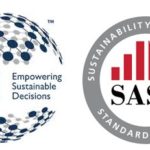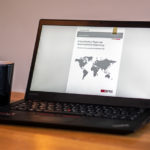In an effort to enhance public disclosure of environmental and social
performance, CERES and the Tellus Institute announced today the launch of
the FACILITY REPORTING PROJECT (FRP).
The FRP is a multistakeholder initiative to develop a generally accepted framework for facility-level and site-specific environmental and social sustainability reporting. The framework will be compatible to the greatest extent possible with the corporate-level voluntary sustainability reporting guidelines developed by the Global Reporting Initiative (GRI), a global effort at standardizing corporate-wide reporting on these issues. The FRP is independent of, but will be carried out in formal consultation with, the GRI.
Initial funding for the initiative will be provided by the Chicago-based Joyce Foundation, a major funder of environmental initiatives affecting the Great Lakes region.
A generally accepted facility-level reporting standard is needed, its sponsors say, because facility-level reporting, where it exists, is fragmented and highly variable. Poor comparability and accessibility of facility-level environmental and social information makes it difficult for concerned groups to assess how manufacturing plants, distribution centers and other business and institutional facilities affect their communities and the local environment. Businesses and institutions seeking to benchmark and improve their environmental and social performance are likewise handicapped.
"Company-wide environmental reports are often of limited value to community groups concerned about a particular facility’s impact in their community, while virtually no data are available on the social impact of individual facilities," said Dr. Mark Stoughton, FRP Project Manager at Tellus. "While an increasing amount of statutorily reported facility-level environmental information is available on-line, much remains in paper files at regulatory agencies, and it is often presented in ways that are not meaningful or relevant to the public. And little information is available regarding
unregulated environmental concerns such as contribution to global climate change, water use, and sprawling development."
"The lack of reporting standard also inhibits efforts, even those internal to the company, toward improvement of environmental and social performance," said Iain Watt, Corporate Accountability Specialist for CERES. "Government agencies that want to recognize and encourage high performing facilities through voluntary, beyond-compliance programs have very little basis for comparing facilities. Forward-thinking firms and facilities that wish to report on sustainability performance and the facility level have to start from scratch in creating reporting frameworks, and the results may not be comparable or perceived as legitimate."
According to both groups, standardized facility-level sustainability reporting is needed to produce information that is accurate, accessible, sufficient, comparable, interpretable and trusted. Broad reporting under such a framework will:
– Provide a far stronger basis for assessment and decision-making on the part of the public, government, investors, and the facilities themselves, allowing these actors to track sustainability performance over time for individual facilities, sectors, or geographic areas.
– Give facilities choosing to report an accepted reporting model, reducing the costs of devising reporting frameworks from scratch, and increasing credibility with the public, especially the activist public.
– Empower community organizations in interactions with individual facilities.
– Enable government and facility managers to identify successes worthy of replication far more easily.
The framework will be the product of a 1215 member expert panel drawn from environmental, civil society and labor organizations, business, and academics, and will be informed by a broad stakeholder consultation process.
CERES and Tellus will offer technical support to this process and facilitate the stakeholder consultation. Dr. Shelley Metzenbaum is joining the CERES/Tellus team as a senior consultant.
This project is independent of, but will be carried out in formal consultation with the Amsterdam-based and newly independent Global Reporting Initiative (GRI; www.globalreporting.org), which was originally convened by CERES & UNEP, with technical support from Tellus. The framework will be compatible to the greatest extent possible with the corporate-level voluntary sustainability reporting guidelines developed by the GRI.
The first phase of the project will include technical research on benchmarking of existing efforts & selection of expert panel. The project is actively seeking facility-level reporting examples/experiences from practitioners, including those using the GRI Guidelines for facility-level reporting.
The initial research and development phase will be followed by the release of an exposure draft of framework, broad consultation and call for input electronically and via workshops and meetings.
Comments from the exposure draft process will be used to develop revised guidelines and facility beta-tests, with the last phase to include the final framework revision & endorsement campaign.
Project documents and additional contact information are available on the FRP website, www.facilityreporting.org. As the initiative develops, the website will be a central mechanism for implementing the FRP¹s participatory process.



